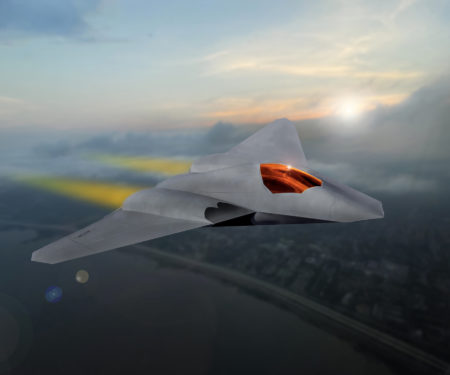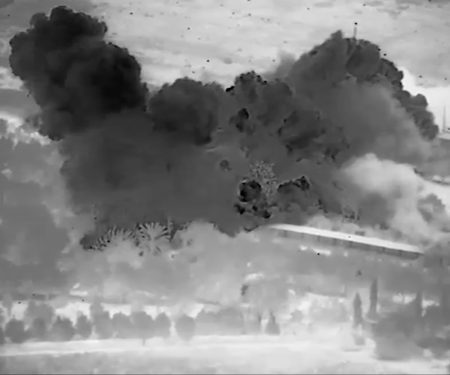Radar Sweep
As Third Test Phase for XA100 Adaptive Engine Wraps, GE Mutes F-35 Pitch
When GE Aerospace invited a small group of reporters and analysts to its facilities in Evendale, Ohio, in May, the company revealed that it launched a new phase of testing for its XA100 adaptive engine for the F-35, pushing to collect more data that could not only improve the prototype powerplant, but lay the groundwork for next-gen engines that will follow. That phase of testing is complete, David Tweedie, GE Aerospace vice president and general manager for advanced defense products, told Breaking Defense in a recent interview—while providing a sign that the company is moving its focus for the engine away from its long standing F-35 target.
Taiwan Doubts China’s Xi Will Have the Ability to Invade by 2027
Chinese President Xi Jinping is unlikely to have the capability to conduct a successful invasion of Taiwan by 2027, according to a top Taiwanese security official, casting doubts on the progress of Beijing’s military modernization plans.
Amid Competing US Security Priorities, Ukraine Could Get Left Behind
Ukraine is running out of money and time, its proponents say. But congressional interest in financing its fight against invading Russian forces has dipped lower than ever, and rising competition from other national security priorities—including Israel and the U.S. southern border—could sound the death knell for continued American aid for its embattled European ally.
OPINION: Two Things the Space Force Needs from Congress—And One Thing It Definitely Doesn’t
In December, the Space Force will turn four, and while plenty of progress has been made, the service is still being developed. In this new op-ed, longtime analyst Todd Harrison, who this week joined the American Enterprise Institute, weighs in on two legislative proposals in front of the Hill and why they would benefit America’s newest military service—and one he says should be left behind.
Space Competition Enters the Gray Zone
In the evolving landscape of space warfare, conflict is shifting into what experts commonly call the “gray zone.” Unlike traditional conflicts defined by clear boundaries, rules of engagement and identifiable actors, space battles in the gray zone are ambiguous, with military and civilian activities that can be difficult to discern. “It’s crucial for U.S. policymakers and military leaders to understand the nuances of future competition in space, and how it will likely play out,” said John Klein, military strategist and adjunct professor at George Washington University’s Space Policy Institute.
Will DOD’s Plan to Improve Quality of Life Be Different This Time?
What can military and defense officials do to really address long-term problems like the condition of on-base housing and barracks, shortages of child care, spouse unemployment, and the destruction or damage of property during a move to a new duty station? Over the last several decades, these problems have been persistent, and while there have been numerous efforts over the years to fix them, it sometimes seems like a game of whac-a-mole.
UK Sees ‘Incredible Acceleration’ in Military Capabilities from Ukraine War
Supporting Ukraine has led to a sharp increase in the British military’s technological capabilities, thanks to captured Russian technology and Ukrainians’ battlefield observations, Britain’s armed forces minister said. Costly experience and the acid tests of combat have brought about an “incredible acceleration in Western military capability,” James Heappey said while visiting the United States aboard the HMS Prince of Wales, a British aircraft carrier visiting Norfolk last week, in part to test F-35s.
Officers Say Air Force’s New Parental Discharge Policy Is Broken
The Air Force argues its separation policies—which let troops apply to resign before a child is born, or within one year after the baby’s birth—are designed to offer families flexibility and can boost recruitment and retention. Airmen say erratic implementation of those rules has forced them to parent across state lines or continents, scramble for child care, and shortchange their personal and professional lives.
LaPlante: ‘People Get Laid Off Because of Continuing Resolutions’
Pentagon acquisition chief Bill LaPlante said Nov. 14 that he meets with other defense officials every day at 1 p.m. to discuss a potential government shutdown and the impact of stopgap funding on U.S. weapons production. “You want the Chinese to steal and adopt this model,” he said, referring to ongoing congressional dysfunction, during a conference hosted by POLITICO.
Armed Services Lawmakers Bullish on Defense Bill’s Chances Under Speaker Johnson
Two senior members of the House Armed Services Committee expressed confidence that new Speaker Mike Johnson will help advance must-pass defense policy legislation that can become law before the end of the year. Speaking at the POLITICO Defense Summit on Nov. 14, Reps. Rob Wittman (R-Va.) and Joe Courtney (D-Conn.) noted that Johnson was an Armed Services Committee member before winning the gavel. That perspective, they said, will be critical as House and Senate talks on a compromise National Defense Authorization Act come to a head.
CENTCOM Aims to Be Pentagon’s AI ‘Integration Testbed’
U.S. Central Command’s leadership is moving deliberately to get end users of new artificial intelligence capabilities involved as early as possible in the development of those emerging tools, according to CENTCOM’s Chief Technology Officer Schuyler Moore.
‘The Metal Detector’ Reunites Descendants of a B-17 Crew Shot Down in World War II
On May 29, 1944, an American B-17 Flying Fortress nicknamed “Miss Ponnie” crashed while on a bombing mission over Nazi-occupied Austria. Georg Reutter’s mother watched the plane go down from her house in Graz. Some 75 years later, Reutter, now an elderly retiree, picked up his metal detector and walked out to what he believed was the crash site to look for the wreckage. A simple act of curiosity would lead to Georg reuniting the descendants of the 10-man bomber crew for the 75th anniversary of the crash.



